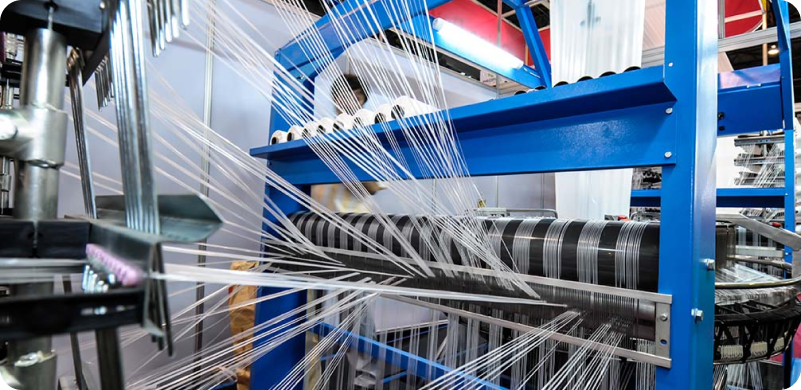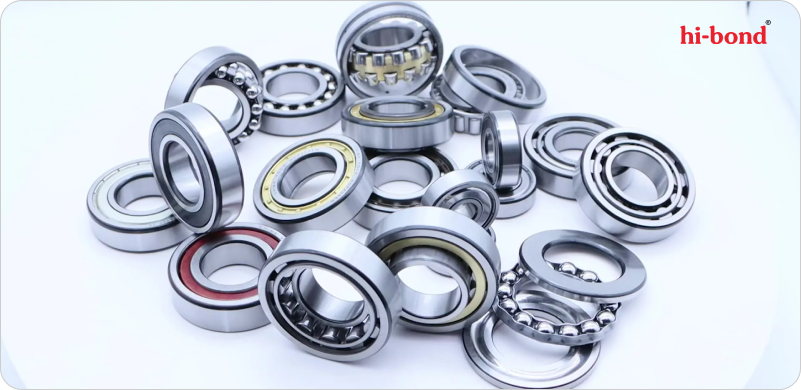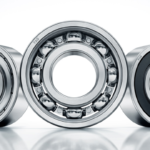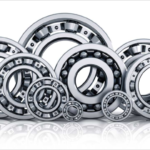The textile industry has made great progress in making fabrics that are a part of our daily lives. Textile machinery has drastically changed from simple hand-operated devices to advanced automated systems. The transformation has revolutionized textile production worldwide. But an essential part of its machinery often goes unnoticed – textile bearings.
These exceptional mechanical components, like the ones made by Hi-bond Bearings Pvt. Ltd, the leading bearing manufacturer, is essential for the machinery to work smoothly and efficiently. They help achieve precision, reliability, and innovation in the textile manufacturing process.
Keep reading the blog post to learn about the important role of textile bearings in machinery and how they contribute to the success and advancement of the textile industry.
The Essential Role of Bearings in Textile Machinery
In textile machinery, bearings silently support and facilitate movement in crucial components like spindles, rollers, shafts, and gears. By reducing friction between these moving parts, bearings enable smooth rotation and movement, ensuring efficient operation and longevity of the machinery.
Textile manufacturing requires precise and continuous operation, making bearings indispensable. They can withstand heavy loads, high speeds, and changing operating conditions, providing stability and minimizing damage. As a result, the overall productivity of the machinery is improved.
To meet the demanding requirements of textile machinery, bearings are designed to withstand tough working conditions. They have a long service life, high load capacity, and can rotate at high speeds while producing minimal noise. Also, they are resistant to dust and debris.
Professionals globally rely on high-quality bearings produced by a specialized bearing manufacturing company, with roller bearings offering exceptional self-aligning functionality and protection against dust.
The Main Categories of Textile Machinery
Textile machinery can be classified into different categories based on their functions and specific applications. Here are the main categories:
- Spinning Machinery: Includes machines like carding machines, rotor spinning machines, and ring spinning frames. These machines process raw fibers, align and clean them, and spin them into yarn using various methods.
- Weaving Machinery: Consists of looms, jacquard looms, air-jet, and projectile looms. Looms interlace yarns to create woven fabrics, jacquard looms enable complex pattern weaving, and air-jet and projectile looms use air or projectiles to propel the weft yarn across the warp.
- Knitting Machinery: Comprises circular knitting machines, flat knitting machines, and warp knitting machines. Circular knitting machines create seamless tubular fabrics or garments, flat knitting machines produce knitted fabrics in flat panels, and warp knitting machines form fabrics by interlocking loops vertically.
- Finishing Machinery: Involves dyeing machines, printing machines, and finishing machines. Dyeing machines apply colorants uniformly to fibers or fabrics, printing machines transfer designs or patterns onto fabrics, and finishing machines perform processes like sizing, bleaching, and coating to improve fabric properties.
Applications of Different Bearings in Textile Machinery
Bearings play an important role in the efficient and reliable operation of textile machinery. Here are some key applications of bearings for textile industry:
- Spindle Bearings: Spinning machines heavily rely on spindle bearings to support the rotating spindles that twist and draw fibers into yarns. These textile bearings operate at high speeds and endure substantial radial loads while maintaining precision, directly influencing yarn quality and production efficiency.
- Shaft Bearings: Textile machinery often involves complex systems of shafts and gears. Bearings in these assemblies support the shafts, reducing friction and allowing for smooth transmission of power throughout the machine. It optimizes energy efficiency and minimizes downtime due to mechanical failures.
- Roller Bearings: Roller bearings assist in guiding, supporting, and controlling the movement of fabrics or fibers through different components, including calendars, looms, and knitting machines. Their smooth operation ensures consistent tension and alignment, which is crucial for maintaining the integrity of the fabric being produced.
- Spherical roller bearings: The specialized spherical roller bearings are designed to function in severe conditions. They support high load capacity, compensate for shaft misalignment, absorb heavy shocks, and withstand high temperatures. These are used in a wide variety of textile machinery applications.
- Cylindrical roller bearings: These textile bearings are designed to withstand heavy radial loads and are commonly used in spinning frames and winding machines.
- Needle roller bearings: With a high load capacity and suitability for high-speed rotation and compact design, needle roller bearings are commonly used in embroidery machines and knitting machines.
- Angular contact ball bearings: Angular contact ball bearings support high radial-axial loads at high speeds, making them ideal for high-performance applications in textile machinery.
- Double row angular contact bearings: These bearings support radial and bi-directional axial loads, with a longer operating life, especially in axial load conditions. They are built for durability and are ideal for applications in the textile industry.
- Self-aligning ball bearings: Self-aligning bearings are useful in applications where installation errors or shaft misalignments are possible. They compensate for misalignments and resist temperature increases, making them suitable for high-speed applications in textile machinery.
- Deep groove ball bearings: These types of ball bearings are commonly used in textile machinery due to their high load capacity and suitability for high-speed rotation.
In addition to these types, other specialized and quality bearings are used in textile machinery, such as thrust bearings and tapered roller bearings, which are available with bearings and bushes suppliers. The experts can also guide you in choosing the specific type of bearing used in a textile machine, depending on the application and operating conditions.
Advancements in Bearing Technology and More in Textile Machinery

Advancements in bearing technology have transformed the efficiency and capabilities of textile machinery. Specialized textile bearings designed to withstand extreme conditions, such as high temperatures and moisture, have revolutionized the industry.
The integration of smart bearings with sensors and monitoring capabilities enables predictive maintenance, reducing the risk of unexpected breakdowns and optimizing operational uptime. Look how textile machinery continues to evolve alongside technological advancements to precisely meet the demands of a rapidly changing industry.
Automation and Robotics for Streamlining Processes
Integrating automation and robotics has brought about significant improvements in textile manufacturing processes. These technologies have enhanced precision and efficiency by reducing manual labor and errors. Computerized controls and programmable systems have paved the way for intricate designs and faster production rates, optimizing the overall manufacturing process.
Revolutionizing Digitalization and Industry 4.0
Implementing IoT devices and data analytics has ushered in a new era for textile machinery. Predictive maintenance, process optimization, and overall equipment efficiency have seen substantial improvements due to these technological advancements. Real-time monitoring facilitated by smart sensors and connectivity has enabled better quality control and resource management, improving productivity and cost-effectiveness.
Technologies That Are Environmentally Conscious
The textile industry has been increasingly focusing on sustainability, and machinery innovations have played a crucial role in this transition. Advancements have centered around using eco-friendly materials, reducing water and energy consumption, and optimizing waste management. Innovations in dyeing and finishing processes have aimed to minimize environmental impact by employing non-toxic dyes and efficient water recycling systems, contributing to a more sustainable textile production cycle.
Advanced Materials and Components for Durability and Performance
Utilizing specialized materials and components, such as high-performance bearings, durable fabrics, and cutting-edge sensors, has immensely boosted the durability, reliability, and performance of textile machinery. These advancements improve the machinery’s overall functionality and align with the industry’s shift towards sustainable operations. Manufacturers are actively exploring eco-friendly materials, lubricants, and designs that reduce friction, energy consumption, and overall environmental impact, ensuring a more sustainable and efficient textile manufacturing process.
Textile Bearings At The Forefront of Machinery Operation!
Bearings are crucial components in textile machinery, providing essential load capacity and durability for smooth and efficient operation. Textile bearings play an indispensable role in supporting the seamless interplay of moving parts, enabling precision, efficiency, and innovation. Their contribution to the reliability and productivity of textile manufacturing processes cannot be overstated.
As technology continues to advance, there are many more exciting prospects for further advancements in bearing applications, fostering a more sustainable and efficient textile industry. Hi-bond Bearings Pvt. Ltd specializes in manufacturing high-quality bearings for textile machinery, designed to withstand heavy loads, high speeds, and harsh operating conditions while delivering optimal performance and reliability.
With expertise, the bearing manufacturers customize bearings to meet your specific needs and requirements. If you are seeking a reliable and experienced manufacturer of parts for textile machinery, contact us today for quality bearing products and services.




